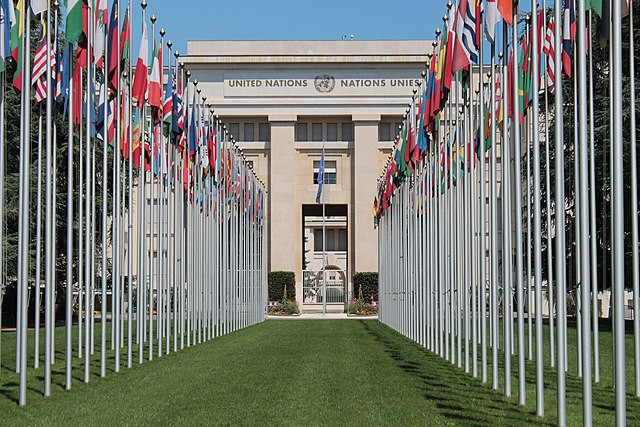Colombian authorities on Thursday forcefully denied a claim by a United Nations committee alleging that 20,000 unidentified bodies were stored at a hangar near Bogotá's El Dorado International Airport. The report, issued by the UN Committee on Enforced Disappearances, collided sharply with statements from Colombian officials and private sector leaders, who said no evidence supports such a grim scenario. After a four-hour inspection of the airport's facilities, officials declared they found no sign of any mass storage of unidentified remains.
"In view of the news reported in some media about the alleged existence of a hangar with thousands of lifeless bodies, OPAIN, concessionaire of El Dorado International Airport, informs the public that it has no knowledge of these facts," the airport management company said, according to media reports. The Institute of Forensic Medicine separately emphasized "it has not received any requests from authorities for the study or analysis of such cases." Colombian officials underscored that no credible sources have substantiated the UN's specific claim about the airport.
The UN's assertion surfaced during the Committee's recent visit to Colombia, a mission aimed at assessing the country's ongoing struggle with enforced disappearances. "Thousands of unidentified corpses lie in cemeteries or poorly managed warehouses, such as a hangar at the Bogota airport, where some 20,000 unidentified bodies are currently stored," the UN said in a statement. Colombian officials have challenged this depiction, contending that the committee's information is inaccurate and lacks verification.
The disagreement over the alleged hangar at El Dorado came as the UN experts painted a broader picture of Colombia's struggles with disappearances. "Enforced disappearances are not a crime of the past. During these two weeks, the people we interviewed conveyed the image of a society overwhelmed by the phenomenon of disappearances, which continue to occur daily throughout the national territory," said committee expert Juan Pablo Albán. Despite years of conflict resolution efforts, the problem appears far from contained.
Key obstacles, according to the committee, include a dearth of reliable data and a complex legal and institutional landscape. "It is of particular concern that there is no reliable global picture of the dimension of enforced disappearances; the figures reported to the delegation range from 98,000 to 200,000 missing persons in Colombia," the committee noted. Such sweeping estimates underscore the challenge faced by a nation still dealing with the legacy of decades-long armed conflict and organized crime.
The committee pointed to what it described as systemic deficiencies hindering Colombia's response to this crisis: underreporting of cases, institutional fragmentation, and inadequate resources. These shortcomings, it argued, contribute to high impunity rates, with some estimates suggesting that as many as 98% of enforced disappearance cases remain unsolved. Moreover, the committee stated, "Colombia lacks a comprehensive public policy to prevent enforced disappearances."
Beyond the airport controversy, the Committee's findings highlight the country's broader environment of insecurity. According to the report, disappearances occur in myriad contexts-ranging from forced recruitment by illegal armed groups and human trafficking, to land disputes and social protests. Meanwhile, the U.S.-backed Colombian state and regional militias continue to grapple for control in remote areas, deepening the complexity of tracking and preventing enforced disappearances.
Colombian officials, for their part, have expressed willingness to address shortcomings in the identification of remains and the investigative process. Yet the stark discrepancy between UN claims and the Colombian authorities' denial regarding the alleged 20,000 bodies at El Dorado Airport indicates a fundamental gulf in their understandings of the crisis. While the inspection yielded no physical evidence to support the UN account, authorities remain under pressure to bolster transparency and accountability.
This was the Committee's third visit to Colombia, during which it held more than 50 meetings and visited six cities. A full report is expected in April 2025.




